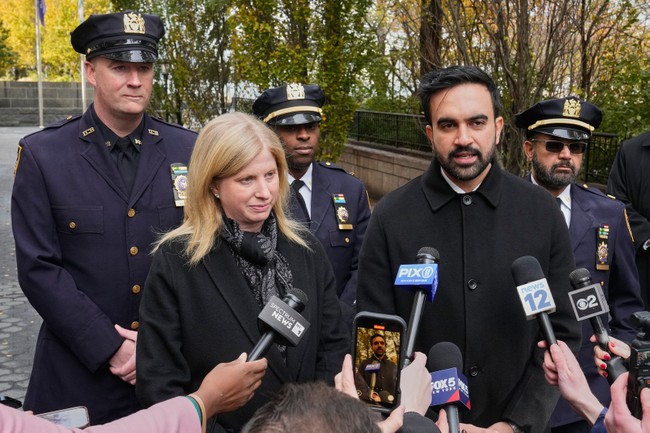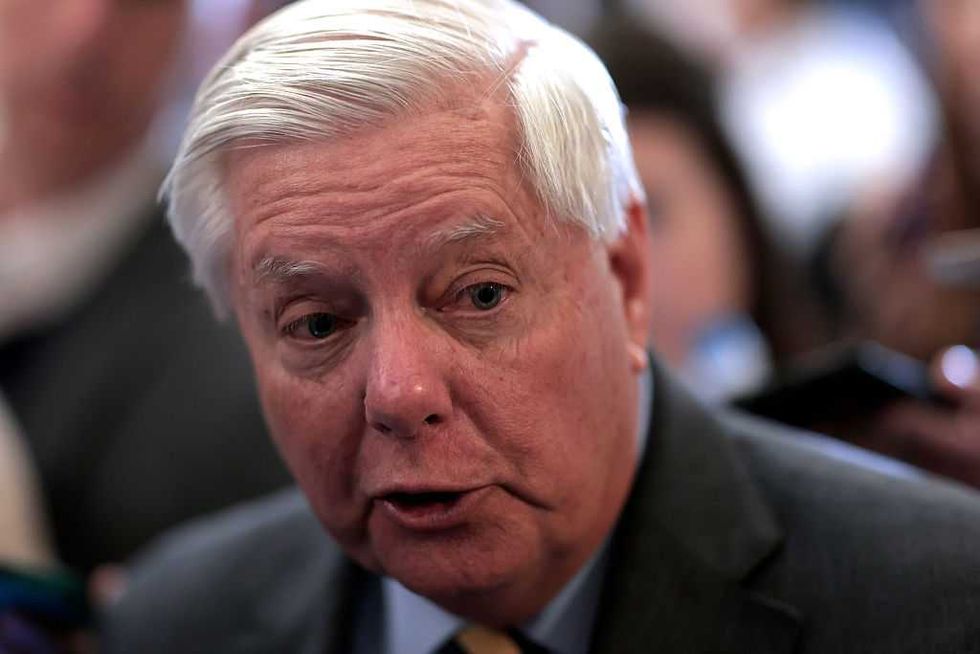
www.theblaze.com
Lindsey Graham blocks House effort to scrap his $500,000+ Arctic Frost payday
Before Republican lawmakers passed their funding bill to reopen the government last week, Senate Majority Leader John Thune (R-S.D.) slipped in a provision that paved the way for senators — and only senators — targeted by the Biden FBI's Arctic Frost operation to squeeze the government for taxpayer cash.Lawmakers in the House, some of whom were also victims of the previous administration's lawfare, unanimously rejected the provision, taking steps to repeal it earlier this week.'What did I do wrong?'Sen. Lindsey Graham (R-S.C.), among the senators eligible to sue for a payday of at least $500,000, stopped the repeal in its tracks on Thursday, prompting chatter about personal enrichment among some of his colleagues.The provisionSenate Judiciary Committee Chairman Chuck Grassley (R-Iowa) published damning documents last month revealing that in its years-long campaign to find "anything they could to hook on Trump, put Trump in prison," the Biden FBI not only subpoenaed records for over 400 Republican individuals and entities but secretly obtained the private phone records of numerous Republican lawmakers.Thune introduced a provision into the continuing resolution that reopened the government to enable senators whose phone records were "acquired, subpoenaed, searched, accessed or disclosed" without his or her knowledge to file a civil lawsuit against the government inside the next five years for at least $500,000 plus legal fees for each instance of a violation.Senators would be able to take legal action if at the time their records were seized, they were a target of a criminal investigation; a federal judge issued an order authorizing a delay of notice to the senator in question; the government complied with the judge's order; and the subpoena was faithfully executed.The backlashThe provision caused bipartisan outrage in the House.House Speaker Mike Johnson (R-La.) said he was "very angry" about the provision, stressing that it had been slipped in at the last minute without his knowledge.RELATED: A payout scheme for senators deepens the gap between DC and the rest of us Photo by Heather Diehl/Getty Images"We’re striking the provision as fast as we can, and we expect the Senate to move it," Rep. Chip Roy (R-Texas) told CNN. "We believe there’s a fairly sizeable growing majority over there that believes that they should strike it."Democrat Rep. Joe Morelle (N.Y.) said that this kind of "one-sided get-rich scheme at the expense of taxpayers is why Americans are so disgusted with this Congress."Rep. Austin Scott (R-Ga.), who indicated that the provision was "probably the most self-centered, self-serving piece of language" he had ever seen, introduced a resolution to appeal the provision on Nov. 12."Nobody in the House supported this language," Scott said on Wednesday ahead of the vote on his resolution. "This language did not go through any committee in the Senate, did not go through any committee in the House, and could never be passed and signed into law if it was discussed openly.""For the people who are saying it's $500,000, I want the American citizens to know this: It's not $500,000. It's $500,000 per account per occurrence," continued Scott. "We have one senator — one — who maintains that this provision is good and is currently saying that he is going to sue for tens of millions of dollars."Scott appears to have been referring to Sen. Graham, who said in a recent Fox News interview that he would sue "the hell out of these people" for "tens of millions of dollars."Scott added that it was right to open up the government but wrong to put "language in the bill that would make themselves individually wealthy."The House passed the Georgia Republican's resolution in a unanimous 426-0 vote.Graham's blockageU.S. Senator Martin Heinrich (D-N.M.) requested unanimous consent on Thursday for the Senate to follow suit, claiming the provision was "unprecedented in American history."Others across the aisle were reportedly warming to the idea of killing the legislation, including Missouri Sen. Josh Hawley — among those whose communications were targeted by the Biden FBI — who stated, "I had my phone tapped, so I'm all for accountability, don't get me wrong, but I just, I think taking taxpayer money is not the way to do it. The way to do it is tough oversight."Desperate to protect the provision, Graham blocked the motion."What did I do wrong?" said Graham, who argued that the surveillance of his communications was unlawful and that he deserved a right to have his day in court. "What did I do to allow the government to seize my personal phone and my official phone when I was Senate Judiciary chairman?"According to reports, federal investigators accessed Graham's phone records. No allegations to date indicate that investigators appropriated Graham's phones.While Democrat senators attempted to paint the taxpayer-funded payback as unsanctioned by their leadership, Graham reportedly extracted from Thune an admission that the provision had been discussed with Minority Leader Chuck Schumer (D-N.Y.)."So this wasn't Republicans doing this," said Graham. "This was people in the Senate believing what happened to the Senate need never happen again."In hopes of alleviating concerns about self-enrichment, Thune proposed on Thursday changing the provision such that any damages awarded under the law would be forfeited to the U.S. Treasury. His corresponding resolution was blocked by Sen. Gary Peters (D-Mich.).Graham underscored on Thursday, "I'm going to sue."Like Blaze News? Bypass the censors, sign up for our newsletters, and get stories like this direct to your inbox. Sign up here!

















